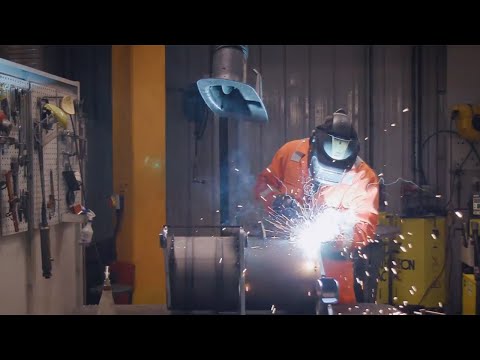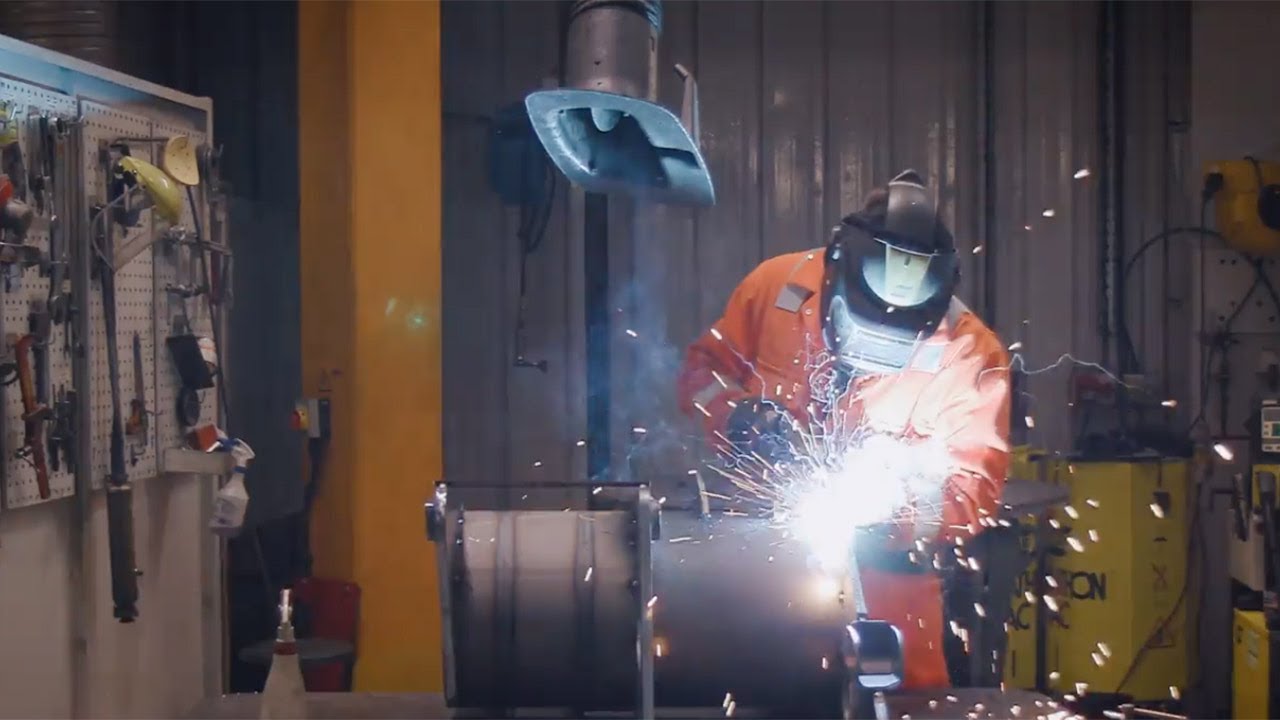Metal fabrication jobs offer an exciting opportunity to shape the future through the art of transforming raw metal materials into functional and aesthetically pleasing structures. With a wide range of applications, from manufacturing components for the aerospace industry to creating intricate sculptures, metal fabrication provides a fulfilling career path for those with a passion for precision and creativity. As a metal fabricator, you will have the chance to work with cutting-edge technologies and state-of-the-art machinery, honing your skills in welding, cutting, bending, and assembling various metal pieces to bring ideas to life. Whether you are intrigued by the challenge of crafting complex architectural elements or fascinated by the process of constructing intricate machinery, metal fabrication jobs offer endless possibilities to showcase your talent and make a tangible impact in various sectors. Joining this industry means becoming part of a dynamic and ever-evolving field where innovation and problem-solving skills are highly valued. Embark on a rewarding journey where you can leave your mark on the world, contribute to technological advancements, and unleash your inner artist through the fascinating world of metal fabrication.

The Growing Demand for Metal Fabrication Jobs
In today’s rapidly evolving world, metal fabrication jobs have become an integral part of various industries. From construction to manufacturing, these jobs play a crucial role in creating and shaping the products we use every day. Metal fabrication is the process of manipulating and transforming raw metals into useful structures and components through cutting, bending, welding, and assembling.
The Skills Required for Metal Fabrication Jobs
Technical Expertise: Metal fabricators must possess a strong understanding of different metals, their properties, and how they can be shaped and formed. They need to be skilled in operating various tools and equipment such as saws, shears, plasma cutters, and welding machines.
Blueprint Reading: Metal fabricators must be proficient in reading and interpreting blueprints, which provide detailed instructions on the dimensions, angles, and tolerances required for each component. This skill is essential to ensure accuracy and precision in the fabrication process.
Problem-solving: Metal fabricators often encounter challenges during the fabrication process, such as material inconsistencies or design flaws. They need to possess problem-solving skills to identify and overcome these obstacles, ensuring the final product meets the required specifications.
The Job Outlook for Metal Fabricators
With the increasing demand for metal-based products across industries, the job outlook for metal fabricators is promising. According to the Bureau of Labor Statistics, the employment of metal fabricators is projected to grow by 3% from 2020 to 2030, adding approximately 16,900 new jobs to the industry.
Metal fabricators are needed in a wide range of industries, including construction, automotive, aerospace, and manufacturing. They play a crucial role in building infrastructure, creating machinery, and fabricating various components used in everyday products.
The Benefits of Pursuing a Career in Metal Fabrication
Job Stability: As mentioned earlier, the demand for metal fabricators is expected to continue growing in the coming years. This provides job stability and security for those working in the industry, as there will always be a need for skilled metal fabricators.
High Earning Potential: Metal fabricators who possess advanced skills and experience can earn competitive salaries. Their expertise is highly valued, especially in industries that require complex fabrication work.
Opportunities for Creativity: Metal fabrication jobs offer opportunities for creativity and innovation. Fabricators can use their skills to bring unique and intricate designs to life, contributing to the creation of aesthetically pleasing and functional products.
The Importance of Safety in Metal Fabrication
Protective Equipment: Metal fabricators must prioritize safety while working with various tools and equipment. Wearing appropriate personal protective equipment (PPE) such as gloves, safety glasses, and helmets is crucial to prevent injuries.
Proper Training: Employers should provide comprehensive training to their metal fabricators on safety protocols and procedures. This includes proper handling of equipment, understanding potential hazards, and implementing preventive measures.
Maintaining a Clean Workspace: A clutter-free and well-organized workspace is essential to prevent accidents and injuries. Metal fabricators should regularly clean their work area and ensure that all tools and equipment are stored properly.
Conclusion
Metal fabrication jobs are vital for a wide range of industries, from construction to manufacturing. Skilled metal fabricators with technical expertise, blueprint reading skills, and problem-solving abilities are in high demand. Pursuing a career in metal fabrication offers job stability, high earning potential, and opportunities for creativity. However, safety should always be a priority, with the proper use of protective equipment, training, and maintaining a clean workspace. With the growing demand for metal-based products, metal fabrication jobs will continue to play a crucial role in shaping our modern world.
Crafting Your Future: Unleashing Skills as a Metal Fabricator
Video Source : AMRC Training Centre
Metal Fabrication Jobs
Metal Fabrication Jobs
| Job Title | Job Description | Required Skills | Salary Range |
|---|---|---|---|
| Welder | A welder is responsible for joining metals using various welding techniques, such as MIG, TIG, or arc welding. They interpret blueprints, measure and cut metals, and ensure the structural integrity of the fabricated metal components. | Proficiency in welding techniques, knowledge of safety protocols, ability to read blueprints, attention to detail, physical stamina | $40,000 – $70,000 per year |
| Metal Fabricator | A metal fabricator constructs and assembles metal structures, equipment, and machinery. They use specialized tools, such as shears, press brakes, and saws, to cut, shape, and bend metals according to project specifications. Metal fabricators often work with stainless steel, aluminum, and other types of metal. | Proficiency in metalworking tools, ability to read and interpret technical drawings, knowledge of different metals and their properties, attention to detail, problem-solving skills | $35,000 – $60,000 per year |
| CNC Machinist | A CNC machinist operates computer numerical control (CNC) machines to fabricate metal parts with precision. They set up and load materials, adjust machine settings, and monitor the machining process. CNC machinists also perform routine maintenance on the machines to ensure optimal performance. | Proficiency in operating CNC machines, ability to interpret technical drawings, knowledge of machining processes, attention to detail, problem-solving skills | $45,000 – $80,000 per year |
| Sheet Metal Worker | A sheet metal worker specializes in working with thin metal sheets to create products like ductwork, roofing, and ventilation systems. They measure, cut, shape, and join metal sheets using various techniques like soldering, riveting, and welding. | Proficiency in sheet metal cutting and forming techniques, ability to read technical drawings, knowledge of different metals and their properties, attention to detail, manual dexterity | $35,000 – $65,000 per year |
| Quality Control Inspector | A quality control inspector ensures that fabricated metal components meet the required quality standards and specifications. They inspect finished products, conduct tests, and identify any defects or non-conformities. Quality control inspectors play a crucial role in maintaining the overall quality and integrity of metal fabrication projects. | Knowledge of quality control processes, ability to use measuring tools and equipment, attention to detail, analytical skills, ability to interpret technical specifications | $40,000 – $70,000 per year |
Note: The salary ranges mentioned above are approximate and can vary based on factors such as experience, location, and company size.

